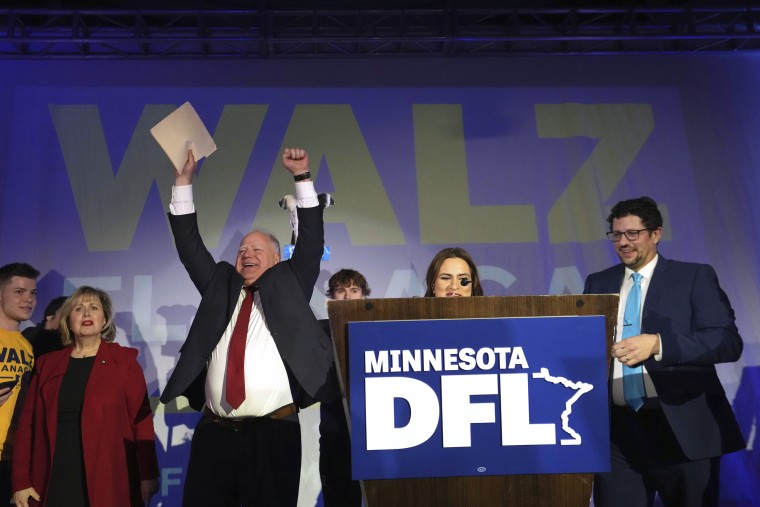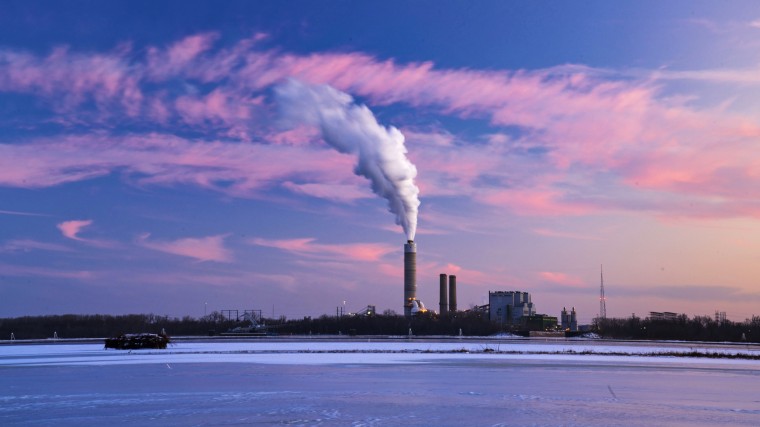The midterm elections may have resulted in a divided Congress, but environmentalists still saw plenty to celebrate, with wins in several key races that could reshape climate politics in the country over the next few years.
While a Republican-controlled House likely means it will be more resistant to climate policies, experts said certain election victories — particularly at the state and local level — could be significant in helping the nation reduce emissions and transition away from fossil fuels.
At the federal level, the Democrats held onto control of the Senate, an outcome that means opponents won’t be able to dismantle President Biden’s sweeping Inflation Reduction Act, which includes hundreds of billions of dollars to fight climate change.
The law, passed in August, includes major spending to expand renewable energy production, provide incentives for electric vehicles and clean energy, and prioritize environmental justice initiatives. Its implementation will largely fall to state and local leaders, making wins by Democratic governors in places such as Pennsylvania, Michigan, Wisconsin and Minnesota important, said Caroline Spears, executive director of Climate Cabinet Action, a political action committee that aims to help climate-focused candidates in down-ballot races get elected.
“You really need leadership in these local areas to execute on the Inflation Reduction Act to the fullest extent,” Spears said. “That is going to take leadership from governors, from state legislatures and public service commissions and state and county officials to get that done.”

In Minnesota and Michigan, in particular, Democrats now control the governor's office along with both the State Senate and House of Representatives, which means lawmakers in those states will be able to pass new climate laws.
“In the past few years, there has been incredibly strong climate legislation passed in the Minnesota State House for carbon-free utility standards, greenhouse gas reduction goals, huge environmental justice investment and environmental justice legislation,” Spears said. “They passed the House, but they kept dying in the State Senate. That barrier is gone now.”
Similar situations, with Democratic control of the governor's seat and both chambers of the state legislature, are also in place now in Massachusetts and Maryland. Massachusetts’ new governor, Maura Healey, also has a history of holding fossil fuel companies accountable. In 2019, as Massachusetts Attorney General, Healey sued Exxon Mobil Corporation for deceptive advertising to consumers and for misleading investors about the role that fossil fuels play in exacerbating climate change.But some of the biggest changes in climate politics could play out across the Midwest, particularly in places historically dominated by industrial manufacturing, said Daniel Aldana Cohen, an assistant professor of sociology at the University of California, Berkeley.

State governments in Michigan, Minnesota and Wisconsin now have a chance to transform manufacturing and industry in parts of the so-called Rust Belt, helping to usher in the transition to a greener economy.
“[The Democrats] doing well in the Midwest sort of implies that the return to manufacturing with a green twist is not a problem, and might even be an asset,” said Cohen, whose research focuses on climate change and inequality.
Michigan, for instance, could accelerate the shift to electric vehicles.
“This completely opens the pathway for Michigan to lead on clean cars of the future, and that’s really exciting,” Spears said.
Climate victories at the local level are also poised to make a big impact. In Texas, Democratic incumbent Lina Hidalgo won a tight race for Harris County Judge, a position that oversees the state's most populous county. Harris County includes Houston and millions of people beyond the city's borders.
In her first term, Hidalgo emphasized issues around climate disaster relief and prevention, focusing especially on flooding.
“She’s very data-oriented and science-oriented about how we actually protect Houstonians from flooding,” Spears said.
These measures at the state and local level will better protect communities from the effects of climate change, and will contribute to the country's overall efforts to fight global warming.
If fully implemented, climate experts have said the Inflation Reduction Act could reduce U.S. emissions by about 40% below 2005 levels by 2030. While not enough to meet Biden's ambitious goal of reducing greenhouse gas emissions by at least 50% by the end of the decade, they at least keep that target within reach.
State and local lawmakers will play a crucial role in keeping those emissions-reduction goals in sight.
“We would love to see more great legislation coming out of the federal government, but a ton of money from the Inflation Reduction Act will come as grants to cities, counties and state and local governments,” Spears said. “So it’s really important to have climate leadership in state and local governments to actually execute on that and make sure it happens well.”

